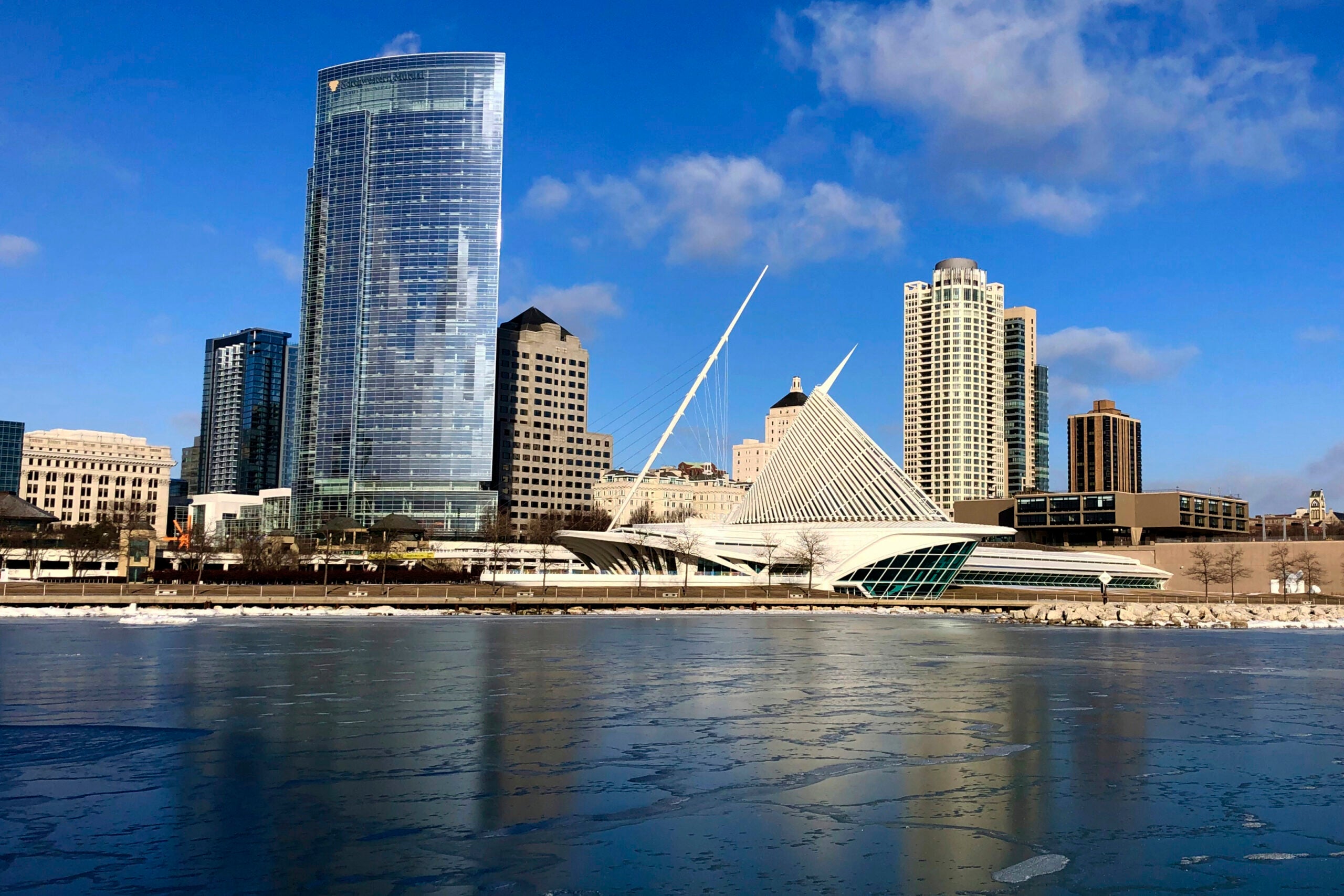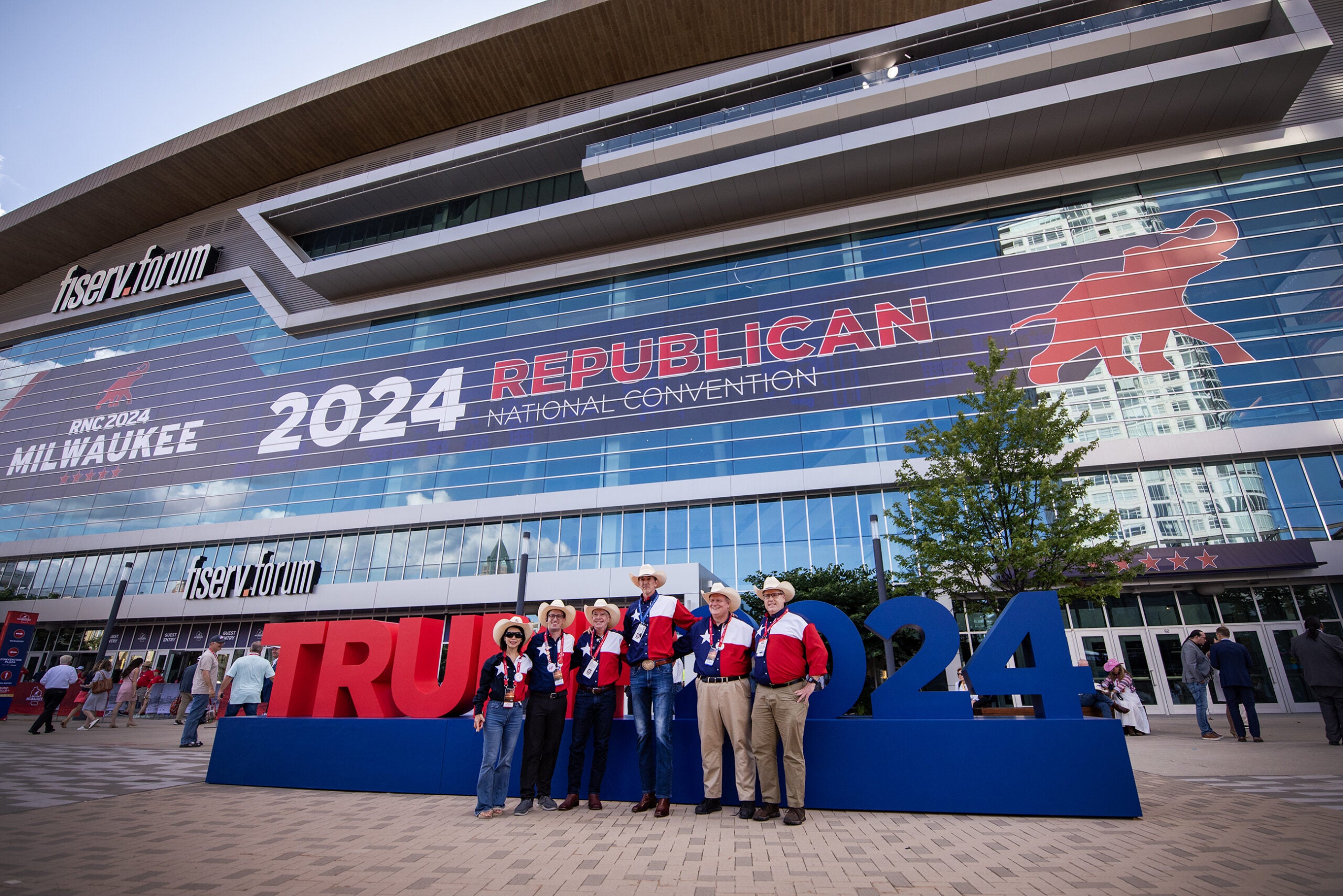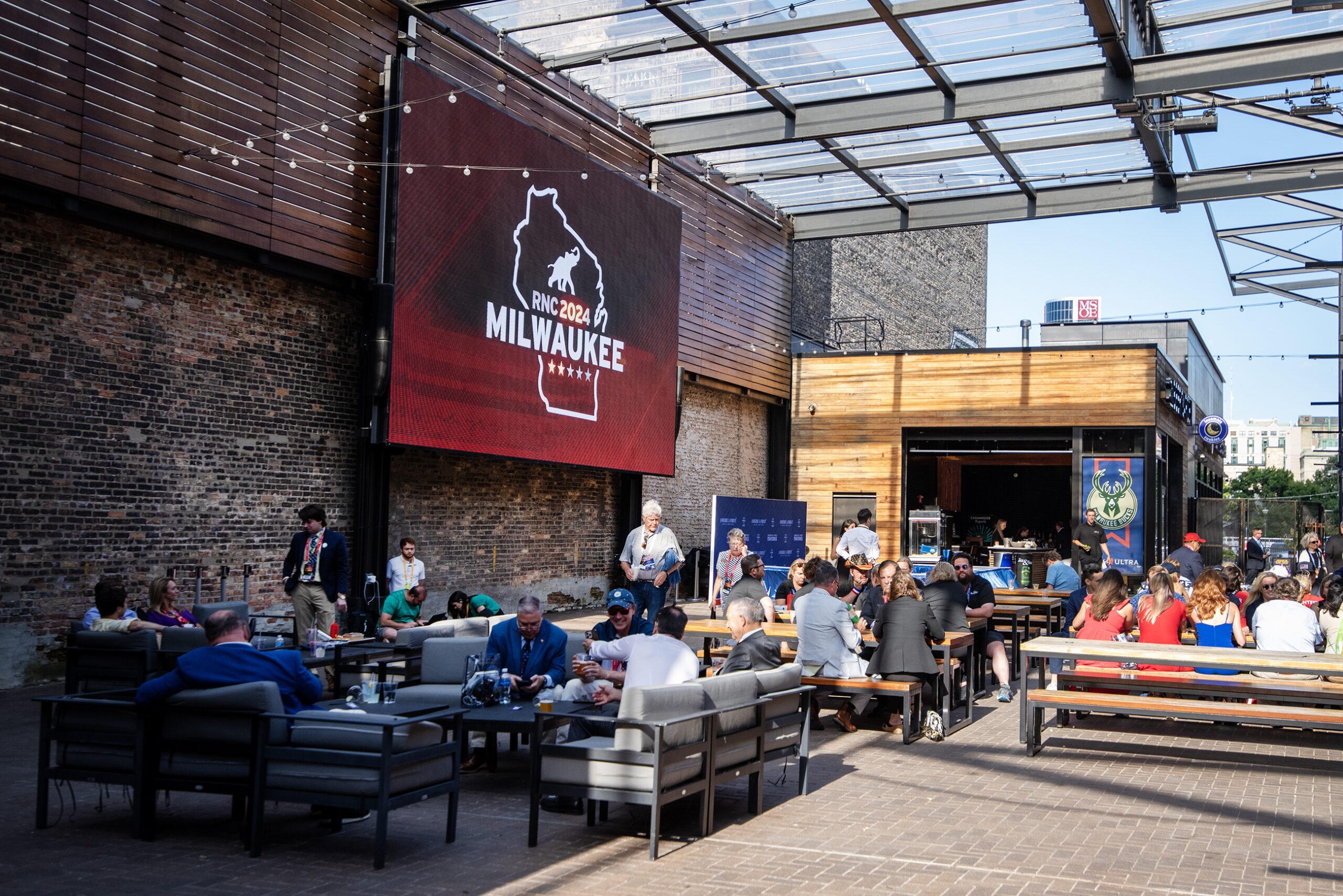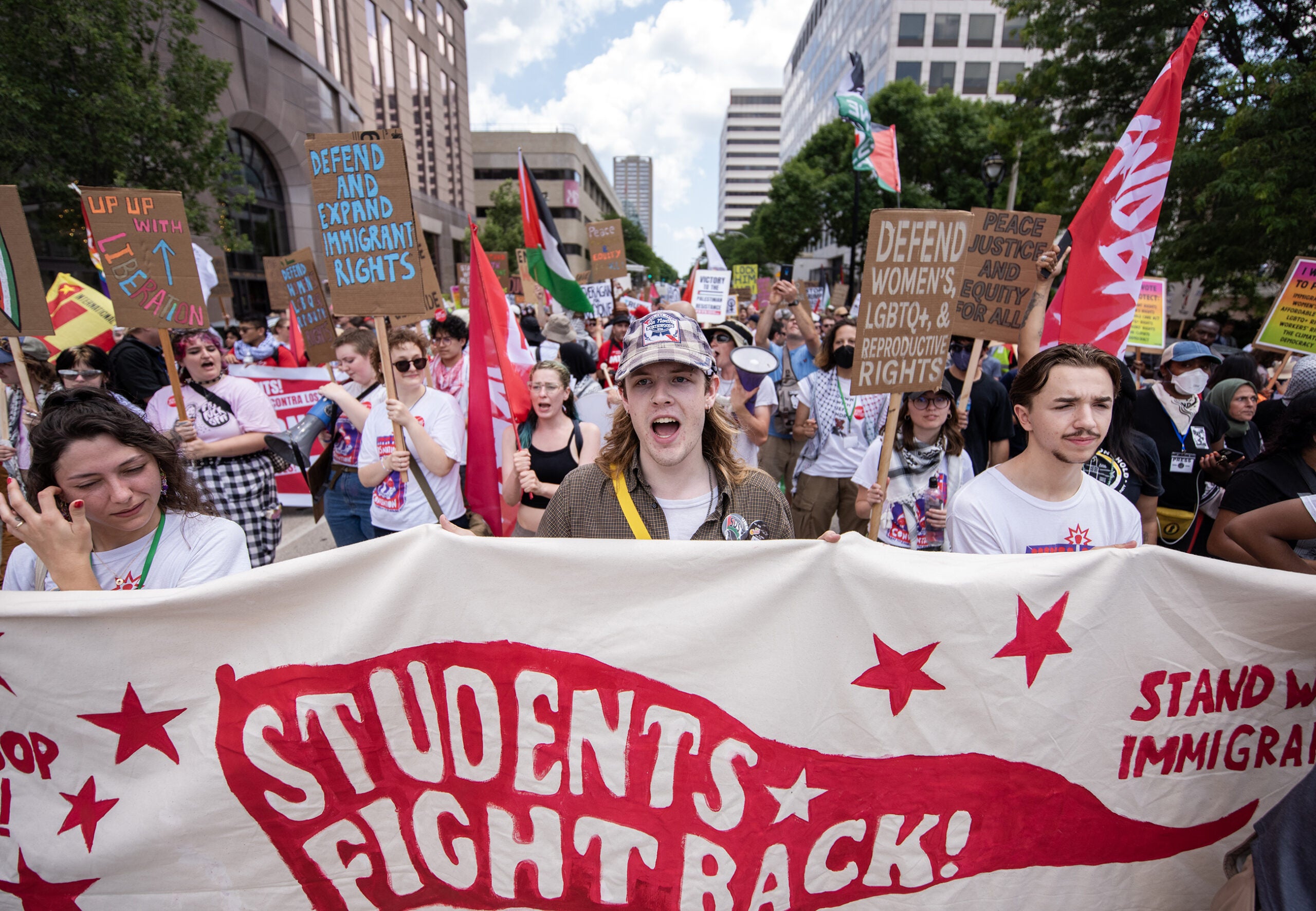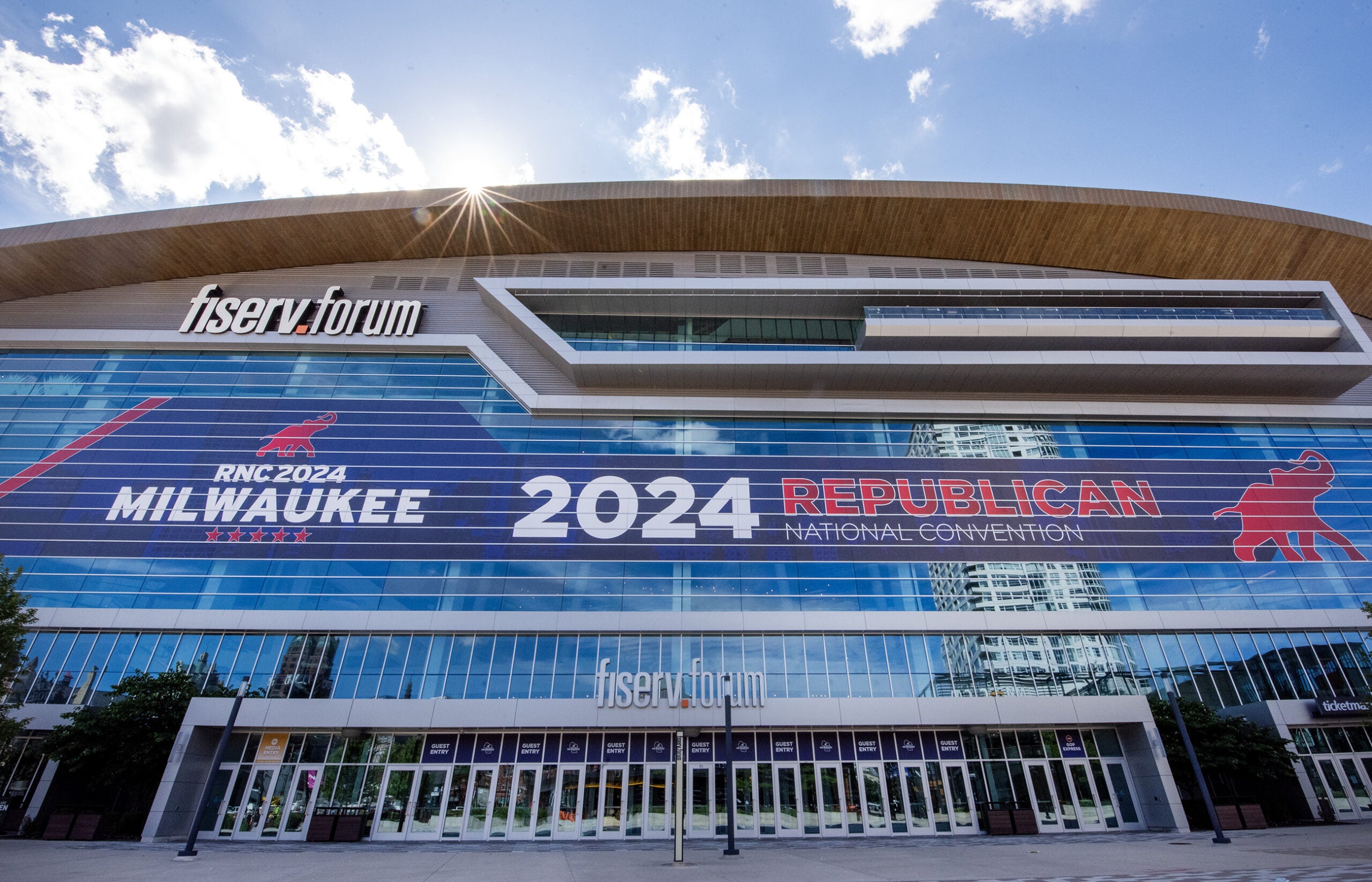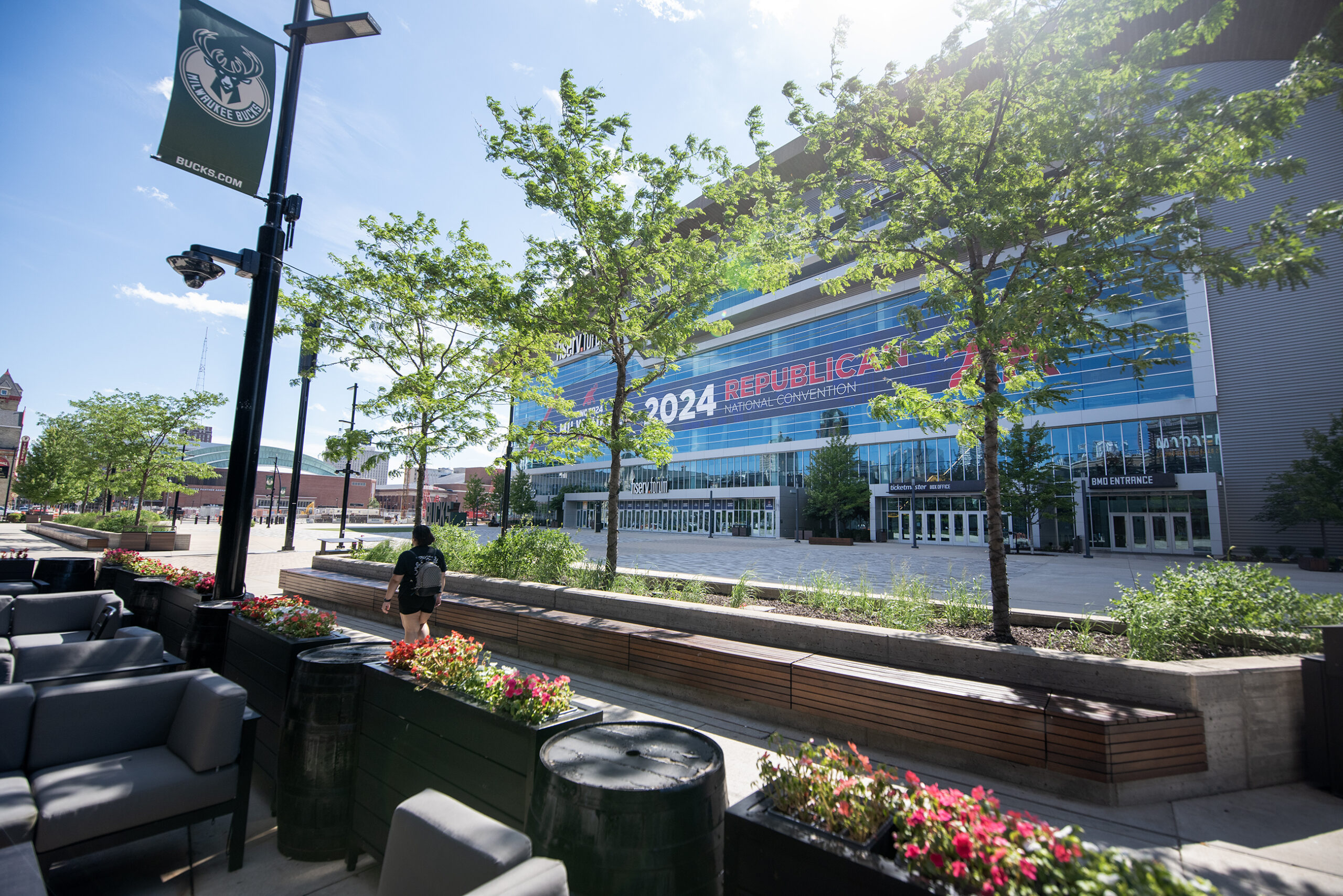Milwaukee alders put a hold this week on approval of a draft contract for the 2024 Republican National Convention amid concerns about the financial impact of hosting the event. A state Republican official said the RNC needs approval of the contract soon for the city to remain in the running.
The council’s Steering and Rules Committee passed the hold motion by a 7-1 vote. The hold means the contract still needs to be voted on by the committee before the full council can take it up. Without committee action, the resolution would die there. The next full council meeting is set for June 1.
Jeff Fleming, spokesperson for Mayor Cavalier Johnson’s office, said discussions with council members will continue.
Stay informed on the latest news
Sign up for WPR’s email newsletter.
“This convention will bring financial benefits to hardworking Milwaukee residents, and we are hopeful the Council will act affirmatively,” Fleming said in an email.
Claire Koenig, communications director for tourism bureau VISIT Milwaukee, said in an email the council will take up the matter again, but it’s not clear when that will happen.
Alder JoCasta Zamarripa introduced an amendment that would require the host committee for the convention to provide $6 million in funding to the city “for the purpose of addressing housing, higher education and workforce development.”
“I don’t think it’s asking for too much,” Zamarripa said.
Alder Michael Murphy was the sole dissenting vote on the motion to hold the resolution. He said he didn’t want to jeopardize potential economic benefits for workers in the hospitality industry, given the impacts of the COVID-19 pandemic on those industries.
“As much as I would like to see (the $6 million in additional funding) come back to the city of Milwaukee, I’ve been informed that in fact, that would kill the deal,” Murphy said. “I’m not willing to risk this deal on that.”
What the contract means for Milwaukee
Milwaukee is competing against Nashville for the convention. The application the city submitted in December highlighted the city’s access to Lake Michigan, entertainment venues, festivals, food, the Milwaukee Bucks and Fiserv Forum. RNC leadership visited Milwaukee in February as part of the process.
Tourism officials have previously estimated the event would bring between $180 million and $210 million in economic impact to the city, but in the course of a three-and-a-half-hour hearing Wednesday, some members of the committee raised concerns over how much the city would directly benefit.
Alder Robert Bauman expressed skepticism around the touted impacts of the convention.
“How does it directly impact the city as an entity with a $600 million general purpose budget and a diminishing ability to satisfy the city services we’re required to perform?” Bauman said. “How does it directly improve our ability to do that?”
Gerard Randall is the first vice chairman of the state’s Republican Party, serving as a coordinator for the Milwaukee RNC Host Committee. He said the RNC is hoping to make its decision on a host city by the middle of June, and had set a deadline of the end of next week for approval of the agreement.
“Our hope is that we get the agreement accomplished so that the decision can be made,” Randall said.
The agreement includes plans for convention security provided by the city, as well as details around preliminary preparations and logistics for the convention, such as road closures.
Lafayette Crump is the commissioner of city development for Milwaukee. He said during the committee meeting the RNC would elevate the city’s image.
“It’s going to show the nation and the world what a beautiful, vibrant, diverse city we have, and it’s not just for the week of the convention, but it is for the days, weeks, months and years, frankly, leading up to the convention, and for a long time to come afterwards,” Crump said.
Community concerns
Community groups have called on the city to reject the convention, saying in a series of open letters that the convention would not bring the financial windfall hoped for. The groups also said that Republican priorities don’t align with the priorities of Milwaukeeans.
Christine Neumann-Ortiz is the executive director of Voces de la Frontera Action, a group that “(fights) for the rights of low wage and immigrant workers,” according to its website. Voces is one of five groups to sign on to the open letters.
She said Milwaukee is a working-class city.
“Under a new leadership … there is a lot of hope that we can be smart about changing the direction of where we go to ensure that we are not just building up economically, but we’re also challenging … policies that contribute to some of the most shameful racial disparities in the country,” Neumann-Ortiz said, referring to Mayor Johnson.
Speaking to reporters Tuesday, Johnson said while he understood the concerns outlined in the initial open letter, he views drawing the convention to the city as a “business decision.”
“Just because the city of Milwaukee would play host … doesn’t mean that individuals, elected or not, are signing up for the platform of the Republican Party,” Johnson said.
Johnson said the convention would aid the city’s economic development in the long term, helping hospitality and tourism workers in particular.
“It’ll put Milwaukee in a position where more large-scale events will then come back to Milwaukee,” Johnson said. “This is a positive loop, and that’s what the RNC means to me.”
Neumann-Ortiz said bringing the RNC to Milwaukee is counter to goals of equality and economic development.
“The image that they want is not the image that they’re going to get,” Neumann-Ortiz said. “Any business decision needs to take into account our values about the kind of city we want to have, the kind of state we want to have.”
The Wisconsin Republican Party did not respond to a request for comment.
The city’s efforts to host the RNC follow in the wake of the 2020 Democratic National Convention that was set to be held in Milwaukee. In 2019, Milwaukee beat Houston and Miami to host it, but COVID-19 caused the convention to go mostly virtual and the city to lose out on millions of dollars.
The convention would have drawn an estimated 50,000 people to Milwaukee, and it was expected to have an economic impact of $200 million, as Wisconsin Public Radio previously reported.
Wisconsin Public Radio, © Copyright 2024, Board of Regents of the University of Wisconsin System and Wisconsin Educational Communications Board.

